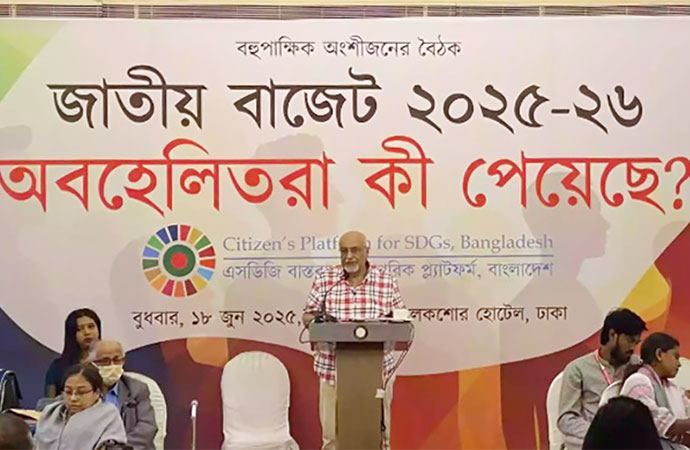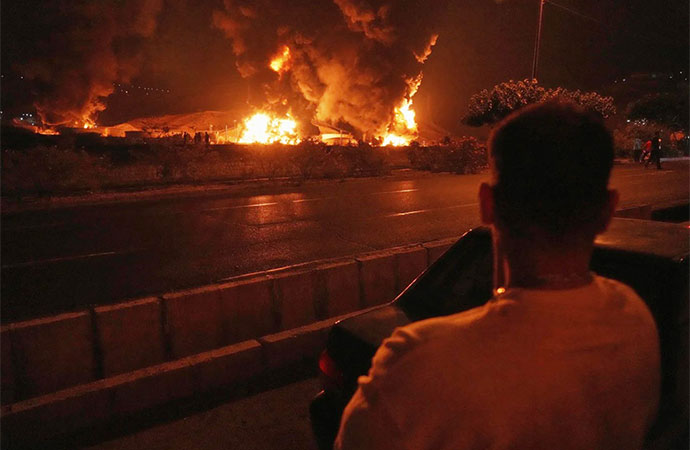Business

Photo: UNB
Eminent economists of the country on Wednesday said the interim government has missed a rare opportunity to formulate a pro-people budget that aligns with the spirit of the July Movement.
"This budget is not in line with the spirit we have been advocating through the July Movement," said Dr Debapriya Bhattacharya, convener of Citizen's Platform for SDGs, Bangladesh.
He observed that the formulation process and structure of the proposed national budget were flawed. "This budget has been prepared within a contradiction of consciousness and process, based on a complementary framework," he said.
Debapriya, also a distinguished fellow at the Centre for Policy Dialogue (CPD), made the remarks while delivering the introductory speech at a discussion titled 'National Budget 2025-26: What is there for the left-behinds', organised by Citizen's Platform at a city hotel.
Senior Research Fellow at CPD Towfiqul Islam Khan presented the keynote paper, where he pointed out the lack of implementation of key reform proposals, including the preparation of a white paper on the economy.
Speaking at the event, Dr Selim Raihan, executive director of the South Asian Network on Economic Modeling (SANEM), said the budget had the potential to bring structural changes but failed to utilise that opportunity.
"The proposed budget can be described as a budget of missed opportunities. There is a significant gap between expectations and achievements," he said.
He noted that although some new elements were introduced, they were incorporated within the framework of an outdated structure. "The goals set in the budget are not realistic," he added.
CPD Distinguished Fellow Professor Mostafizur Rahman echoed the same sentiment, describing the proposed budget as one of "lost opportunities".
Eminent economist Professor Anu Muhammad said, "We expected at least some visible changes under this government. But the majority of the population continues to be neglected."
He criticised the budget for failing to clearly identify which sectors require urgent attention to reduce inequality. "There was a need to determine the right priorities for the marginalised and implement concrete reforms accordingly," he said.
Anu Muhammad also pointed to the absence of efforts to increase direct taxes as a tool to reduce inequality. "Like its predecessor, this government too has relied on indirect taxes instead of introducing progressive taxation," he said.
He further expressed disappointment over the continued low allocations to the education and health sectors. "Bangladesh's spending on education and health remains the lowest not only in South Asia but also globally. Unfortunately, no steps have been taken to change this," he added.

























Leave a Comment
Recent Posts
Pedaling Through the Mangroves ...
The journey from the bustling streets of Barishal to the serene, emera ...
Why the Interim Government mus ...
Two weeks out from what is expected to be a red letter day in the figh ...
Doesn’t matter who thinks what about Bangladesh deci ..
The Other Lenin
US President Donald Trump said his administration
Govt moves to merge BIDA, BEZA, BEPZA, MIDA